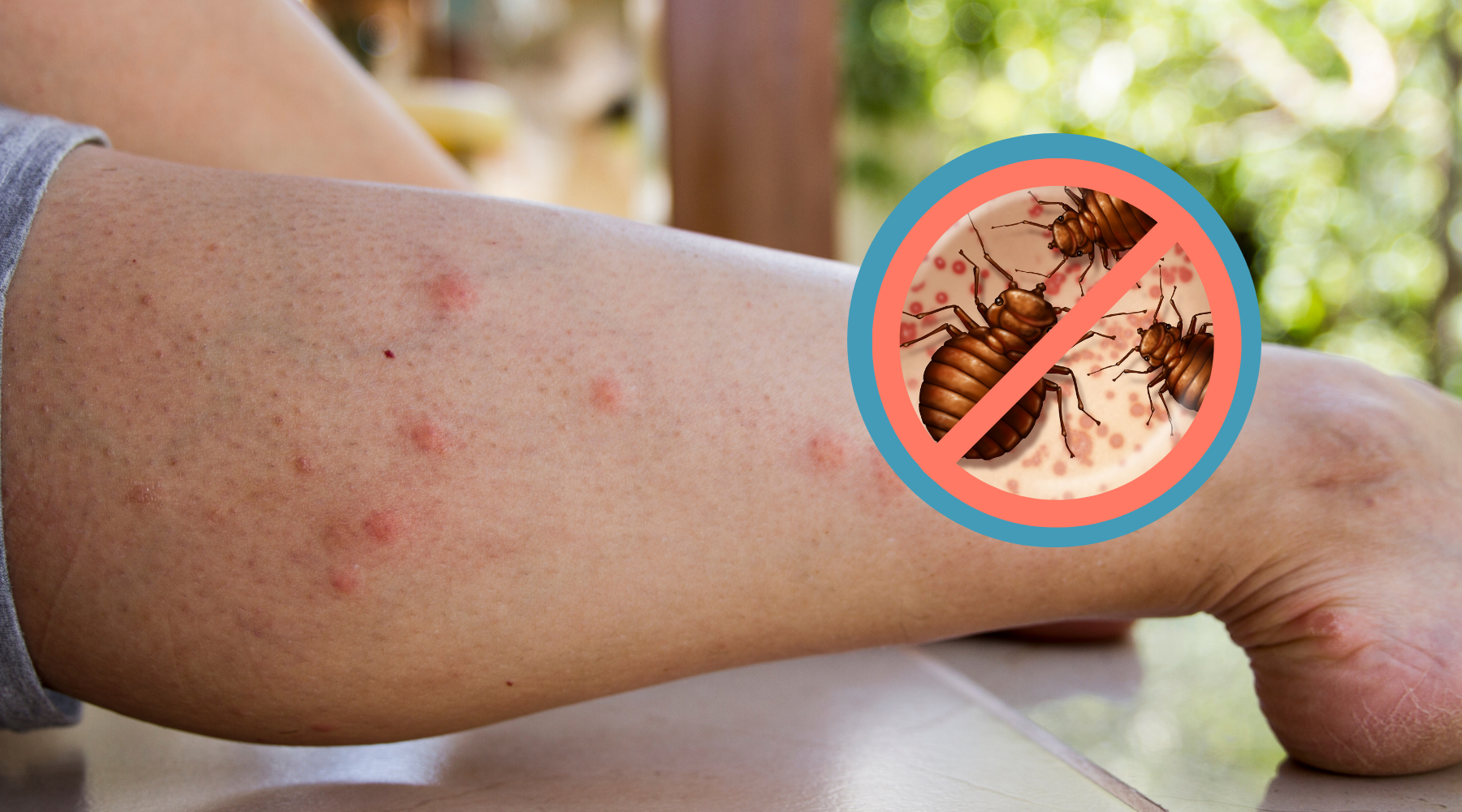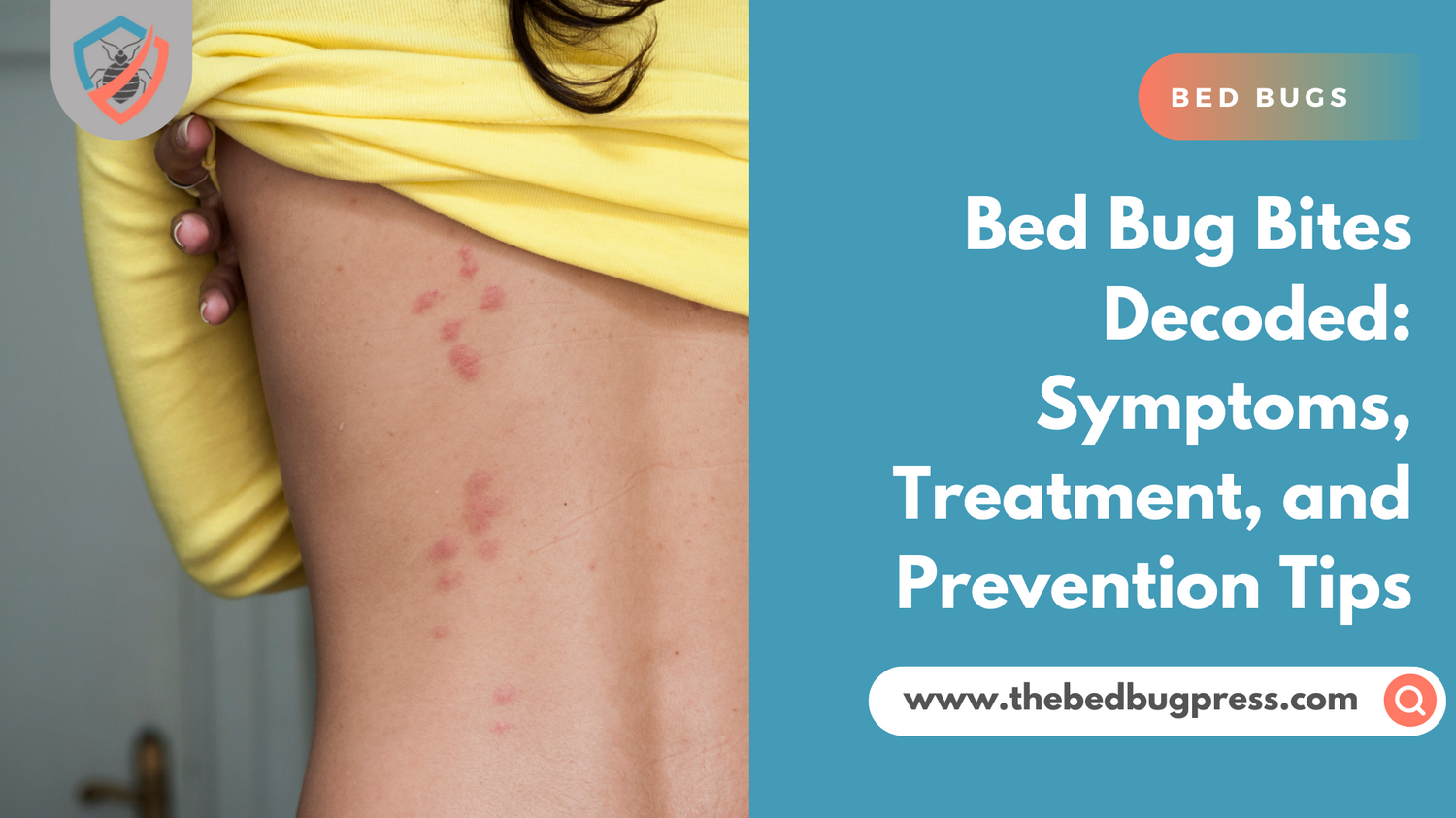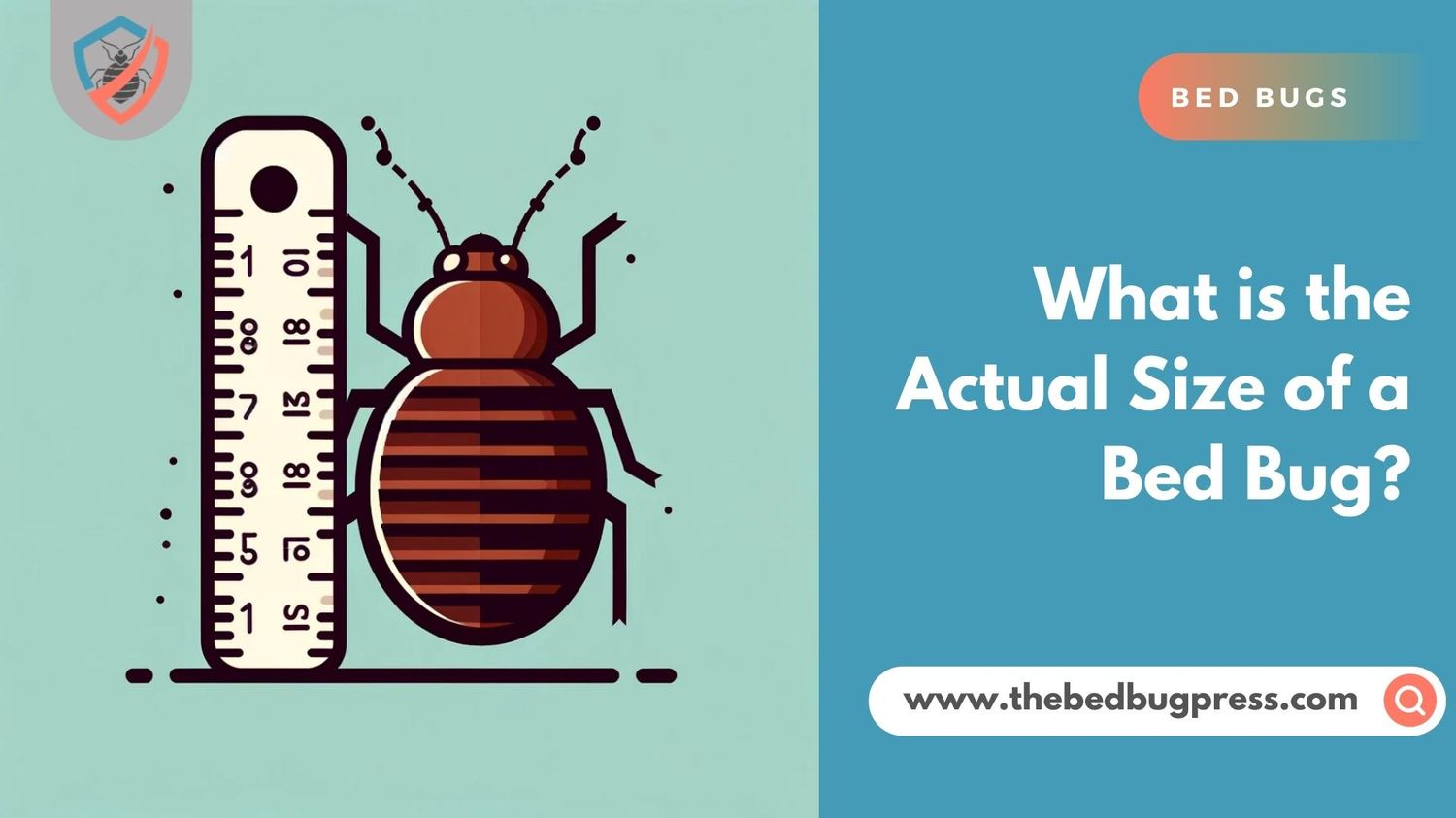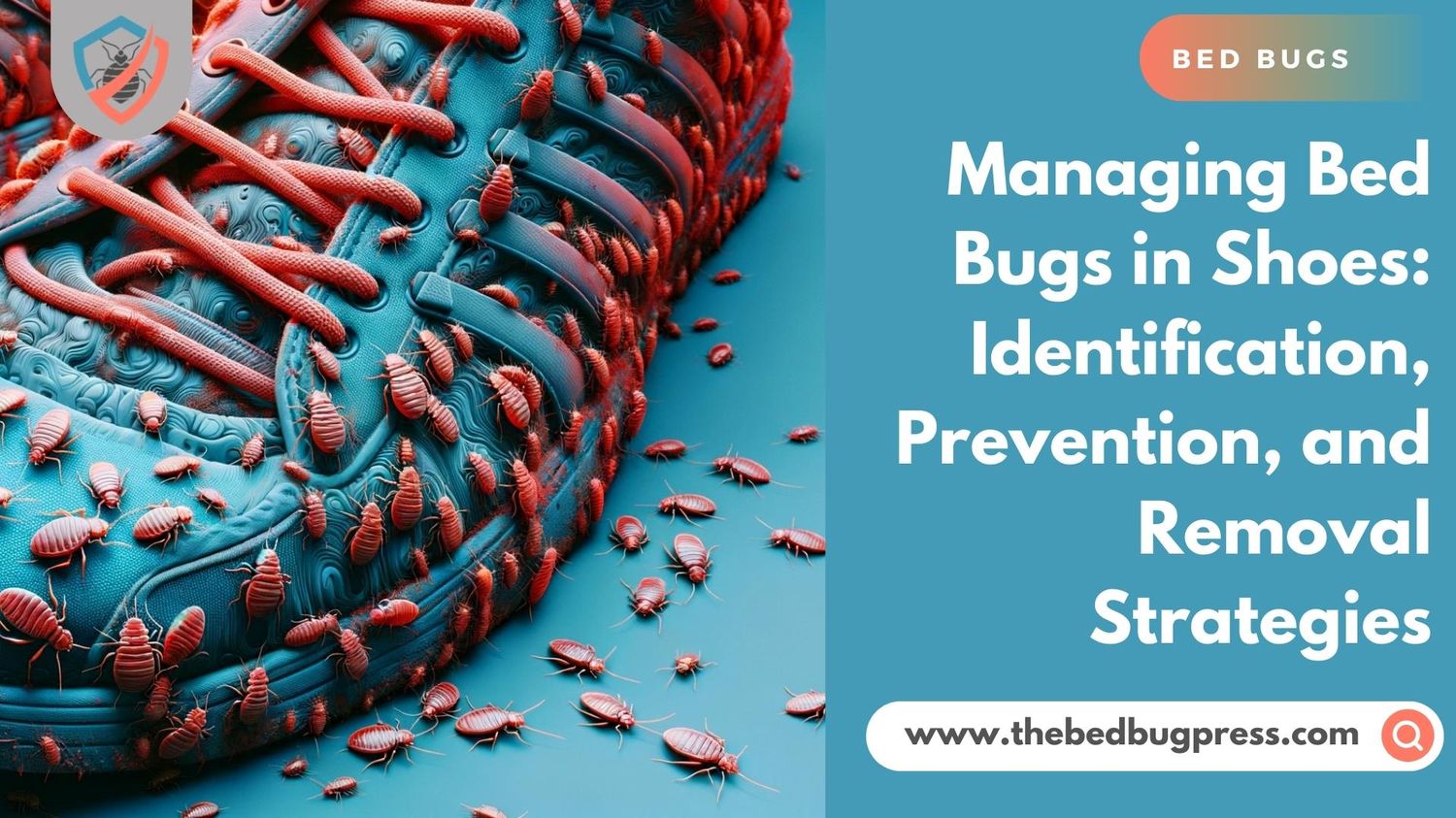Bed bugs are a common household nuisance that can cause considerable discomfort and annoyance. Among the concerns people have regarding bed bugs, one frequently asked question is whether their bites can result in permanent scars. While bed bug bites can be itchy and uncomfortable, do they leave lasting marks?
Bed bug bites have the potential to cause significant discomfort, itching, and, in some instances, an allergic reaction. Many individuals are curious about the possibility of permanent scarring from bed bug bites. Although it is rare, bed bug bites can lead to scarring in certain cases.
Continue reading to discover whether bed bug bites can cause permanent skin scarring, as well as preventive measures and treatment options available.
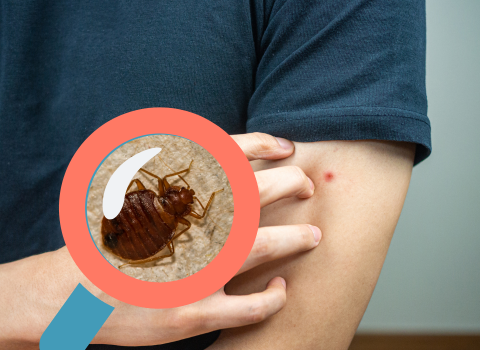
Do Bed Bug Bites Leave Scars Permanently?
The reaction to bed bug bites can vary from person to person, with some experiencing mild symptoms that resolve within a few weeks, while others may have more severe reactions that could potentially lead to scarring.
It’s important to avoid scratching the bites, as this can break the skin and create open wounds, increasing the risk of scarring. Preventing scratching is crucial to minimize the chances of scarring from bed bug bites.
Typically, bed bug bites heal within one to two weeks without leaving long-term scars. However, individuals with an allergic reaction to bed bugs bite or bug bites may experience more severe symptoms such as blistering, hives, or even anaphylaxis, which can elevate the risk of scarring.
The appearance of bed bugs bites and bug scars can vary based on factors like the severity of the bites, skin type, and the healing process. Bed bug bite marks may resemble those of mosquito or flea bites, but they can be more persistent and take longer to heal.
If you are concerned about scarring from adult bed bug bites, it is important to keep the affected area clean and dry. Applying a cold compress can help reduce swelling and itching, and over-the-counter creams and ointments can provide relief from discomfort.
If you notice signs of skin infection anywhere, such as redness, warmth, or pus, it is crucial to seek medical attention promptly. In rare cases, some individuals may develop post-inflammatory hyperpigmentation, a condition characterized by darkening of the skin. However, this condition typically resolves on its own over time.

Do Bed Bug Bite Scars Fade Over Time?
Yes, bed bug scars usually fade over time. There are several factors that will affect how long the scars will start fading:
The severity of the bite
Person’s skin type
How well the wound heals
In general, most bed bug bite scars will start to fade within a few months and will be less noticeable over time.
You can hasten the healing process and reduce the appearance of bed bug bite scars. For instance, keeping the affected area clean and dry can help prevent infection and promote faster healing. Applying aloe vera or other natural remedies may also help soothe the skin and reduce inflammation.
If you have more severe scarring, there are various treatment options available that can help reduce the appearance of bed bug scars. These may include topical creams or ointments, laser treatments, or other medical procedures. It’s important to speak with a dermatologist or other medical professional to determine the best course of treatment for your specific situation.
Scratching Can Cause Bed Bug Bites to Scar
Scratching bed bug bites can indeed lead to scarring. When you scratch the affected area, it can cause additional irritation, inflammation, and even infection, which can slow down the healing process and increase the likelihood of scarring. Scratching can break the skin, creating an entry point for bacteria, leading to secondary infection.
Moreover, excessive scratching can cause further inflammation and irritation, making the bite more visible and increasing the risk of post-inflammatory hyperpigmentation. This condition can result in darkening of the skin in the affected area and may take several months to fade away.
To prevent scarring, it is crucial to refrain from scratching the affected area. Instead, you can try soothing the skin by applying a cool compress, using calamine lotion, or trying natural remedies known for their calming properties. If the itching is severe, over-the-counter antihistamine medication can be considered to help reduce itching and swelling.
In addition to avoiding scratching, keeping the affected area clean and dry is important to prevent infection and promote faster healing. If you notice any signs of infection, such as increased redness, swelling, or the presence of pus, seeking medical attention promptly is essential to prevent further complications.
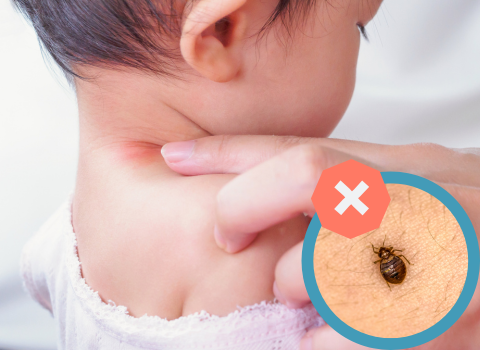
Reducing Bed Bug Bite Scars: Tips and Tricks
Reducing bed bug bite scars can be challenging, but there are several tips and tricks that you can try to help minimize their appearance.
Here are some of the most effective ways to reduce and prevent bed bug bites from scarring:
Avoid scratching:
As previously stated, it is crucial to avoid scratching bed bug bites to reduce the risk of scarring. Even though the bites may be itchy or uncomfortable, it is important to resist the urge to scratch. Instead, you can consider using over-the-counter anti-itch creams or taking antihistamines to alleviate the symptoms. These measures can help minimize the chances of scarring and promote a faster healing process.
Keep the affected area clean:
To prevent infection and facilitate quicker healing, it is important to regularly cleanse the bed bug bites with soap and water. Ensure that you clean the affected area gently using soap and water, then rinse it thoroughly. Afterward, pat the area dry using a clean towel.
Additionally, you can consider applying a mild antiseptic cream or ointment to the bites. This can help create a protective barrier against potential infections and aid in the healing process.
Use natural remedies:
Utilizing natural remedies like aloe vera gel, tea tree oil, or honey can provide soothing effects on the skin and aid in reducing inflammation. These remedies have the potential to promote accelerated healing and minimize the visibility of scars.
Apply sunscreen:
Sun exposure can indeed have a negative impact on scars, making them more visible and potentially delaying the healing process. To protect the skin from harmful UV rays and minimize the risk of hyperpigmentation, it is recommended to apply sunscreen with a high sun protection factor (SPF) to the affected areas.
Seek professional treatment:
For individuals with more pronounced scarring, it may be advisable to seek professional treatment options. Consulting with a dermatologist can provide valuable insights and treatment recommendations such as topical creams or ointments, laser therapies, or other medical procedures that can assist in minimizing the visibility of scars.
Reducing bed bug bite scars can take time and effort, but there are several tips and tricks that you can try to help minimize their appearance. Remember to be patient and consistent with your treatment, and don’t hesitate to seek professional help if you need it.
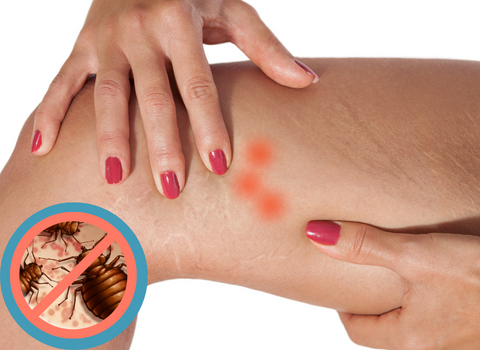
Treating Bed Bug Bite Scars: What You Need to Know
Treating bed bug bites and bed bug bite scars can be challenging, but there are several options available to help reduce their appearance.
Here’s what you need to treat bed bug bites and the bed bug scar:
Topical treatments:
There are various topical treatments available to reduce the visibility of scars, offering potential improvements in texture and appearance. Examples of such treatments include silicone sheets or gels, vitamin E oil, and scar creams. These products work by providing hydration and nourishment to the skin, as well as promoting collagen production, which is essential for scar healing and improvement.
Laser treatments:
Laser treatments have emerged as a widely sought-after choice for minimizing the visibility of scars. This advanced approach involves directing concentrated beams of high-intensity light onto the scar tissue.
Micro-needling:
Micro-needling is another popular treatment for scars. This treatment uses a small device with tiny needles and creates small punctures in the affected area. This triggers the body’s natural healing response and stimulates collagen production to improve the appearance of scars.
Chemical peels:
Chemical peels involve applying a chemical solution to the skin to remove the outer layer of dead skin cells. This treatment gradually improves the appearance and texture of scars. It also improves the tone of the skin.
Surgery:
In some cases, surgical procedures, such as dermabrasion or scar revision, may be necessary to treat more severe scars. These procedures involve removing or reshaping the scar tissue to improve its appearance.
Consider speaking with a dermatologist or other medical professional to determine the best treatment option for your specific situation. Remember, treating bed bug bite scars can take time and patience, but with the right treatment, you can significantly reduce their appearance and improve the overall health and appearance of your skin.
More bed bug bites mean that you are dealing with an unnoticed bed bug infestation. You should also consider addressing the issues regarding bed bugs as soon as possible.
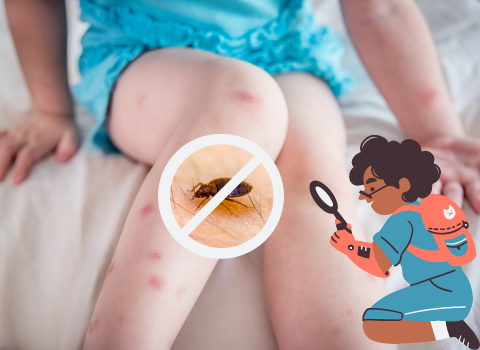
Removing Dark Spots from Bed Bug Bites: A How-To Guide
Bed bug bites can often leave dark spots or hyperpigmentation on the skin, which can be frustrating and difficult to treat.
Here’s a how-to guide for removing dark spots from bed bug bites:
Exfoliate:
Start by exfoliating the affected area to remove dead skin cells and promote cell turnover. Exfoliating reduces the appearance of dark spots. It also improves the overall skin texture. You can use a gentle exfoliating scrub or a chemical exfoliant containing alpha or beta hydroxy acids (AHAs or BHAs).
Apply a skin-lightening agent:
Look for a skin-lightening agent containing ingredients like kojic acid, vitamin C, or licorice root extract. These ingredients can help reduce hyperpigmentation and brighten the skin. Apply the product according to the instructions on the packaging and be patient as results may take a few weeks to become noticeable.
Use sunscreen:
Sun exposure can worsen hyperpigmentation and make dark spots more noticeable. Apply broad-spectrum sunscreen with an SPF of at least 30 to the affected area every day, even when it’s cloudy outside.
Seek professional treatment:
If the dark spots are particularly stubborn or widespread, you may want to consider seeking professional treatment. A dermatologist can recommend various treatments, such as chemical peels, microdermabrasion, or laser therapy, which can help reduce hyperpigmentation and improve the appearance of dark spots.
Be patient:
Removing dark spots from bed bug bites can take time and persistence. It may take several weeks or even months to see significant improvement. It will take a lot of patience and consistency with your treatment to achieve the results that you aim for.
Removing dark spots from bed bug bites can be challenging, but there are several steps you can take to improve the appearance of your skin. Remember to exfoliate, apply a skin-lightening agent, use sunscreen, be patient, and seek professional help if necessary.
Also keep in mind that getting bed bug bites is a sign of a bed bug infestation. The more frequently you get the bites, the more it means that there is a severe infestation going on. Aside from calling an expert to resolve your scarring issues, you might also need the service of a pest control company expert in dealing with bed bug infestations.

